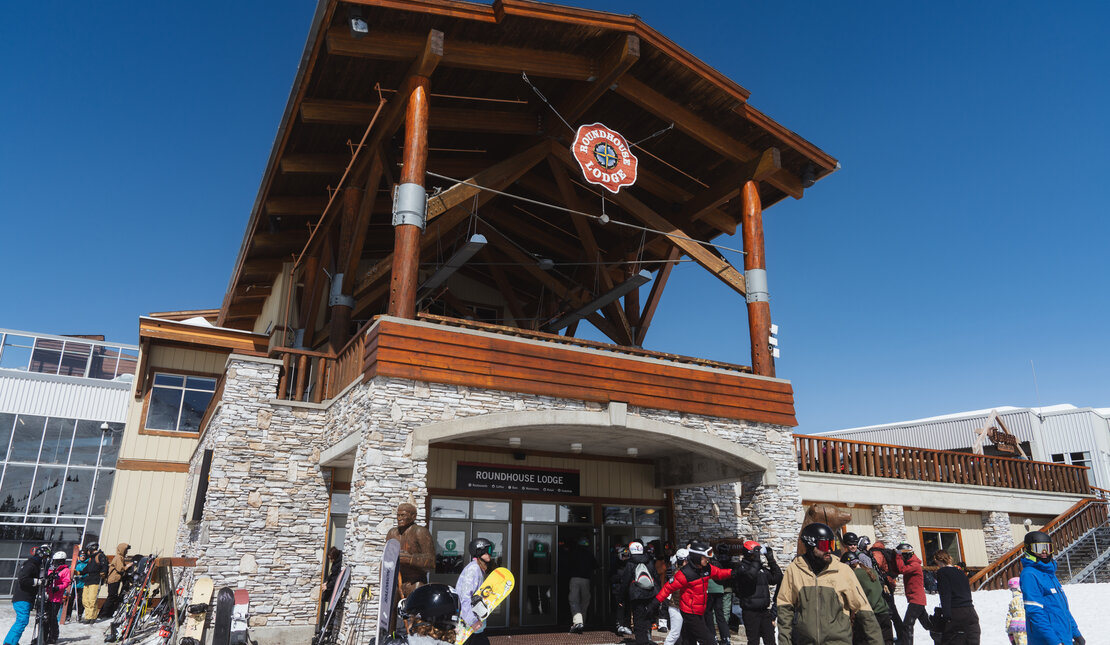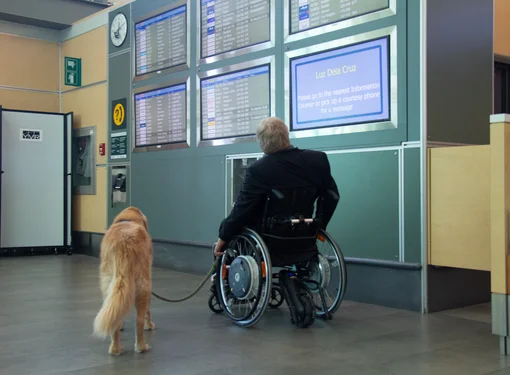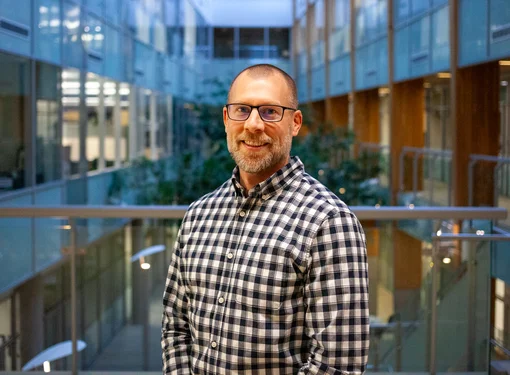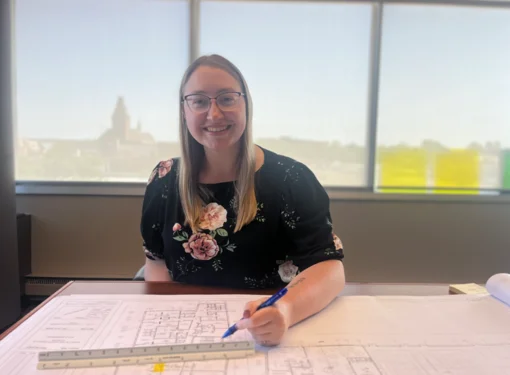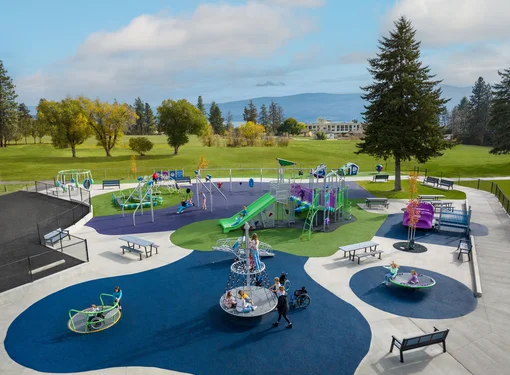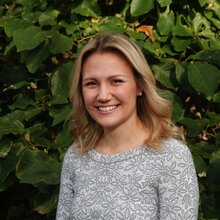Whistler Blackcomb’s Roundhouse Lodge Achieves RHFAC Certification
Whistler Blackcomb welcomes over two million visitors per year, offering a wide array of activities year-round that show off the beautiful mountain landscape in the area.
Ensuring that everyone, no matter their ability, can access these services is something that the mountain resort is seeking to improve.
“We wanted a plan on how to improve our facilities,” Omer Dagan, Business Development Sr. Analyst at Whistler Blackcomb said. “We had already established an accessibility working group that was made up of reps from each internal department, including some individuals with lived experience. It quickly became apparent that we needed more expertise on how to make improvements.”
This led the team to the Rick Hansen Foundation Accessibility Certification (RHFAC) program. They began with four buildings, including the Roundhouse Lodge.
RHFAC is a rating and recognition program that measures the meaningful accessibility of a site based on the holistic user experience of people with varying disabilities. The program provides a holistic, consistent and people-focused approach to measuring access through a rating survey and celebrates organizations’ commitment to accessibility through certification and labelling of their sites.
“Once RHFAC was recommended, we knew right away that it was the next step for us. It was one of the first steps on a much longer journey,” Omer explained.
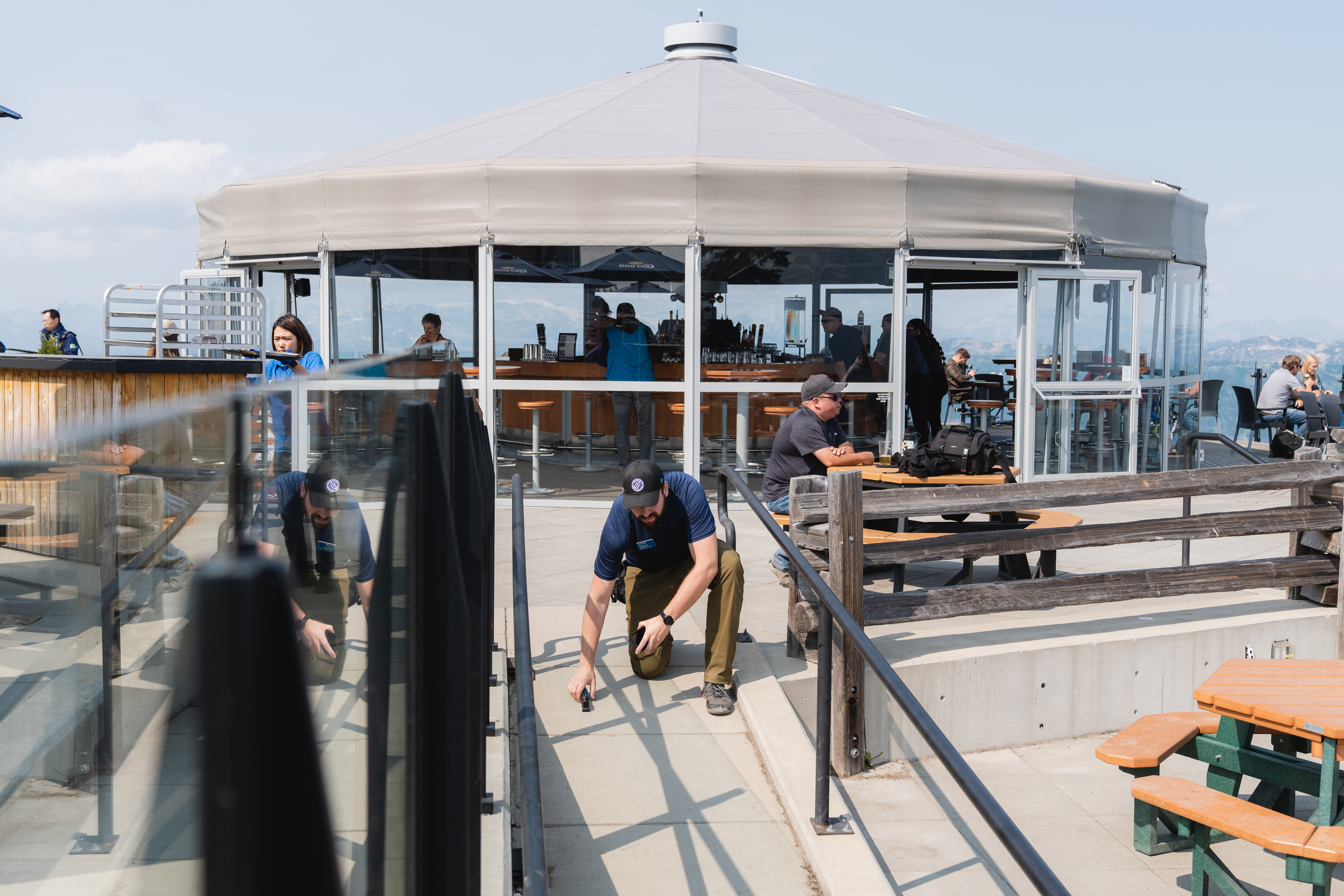
Assessing the Roundhouse Lodge for Accessibility
The Roundhouse Lodge at Whistler Blackcomb is located at the top of one of Whistler Mountain, and is home to dining, retail and picturesque views of the Coast Mountains.
“It is a space that most of our guests and staff move through in their time here,” Omer said of their decision to begin with this building.
The site received its initial rating in 2023. With support from the rating survey provided by the RHFAC Professionals who conducted the assessment, the team at Whistler Blackcomb could then figure out where they could make the most impactful changes first.
Some of the upgrades included changing the flooring out in the lobby for a material with more traction for both mobility devices and individuals in ski boots and adding in a ramp to Steeps Grill - the full-service restaurant within the lodge that was previously only accessible by stairs.
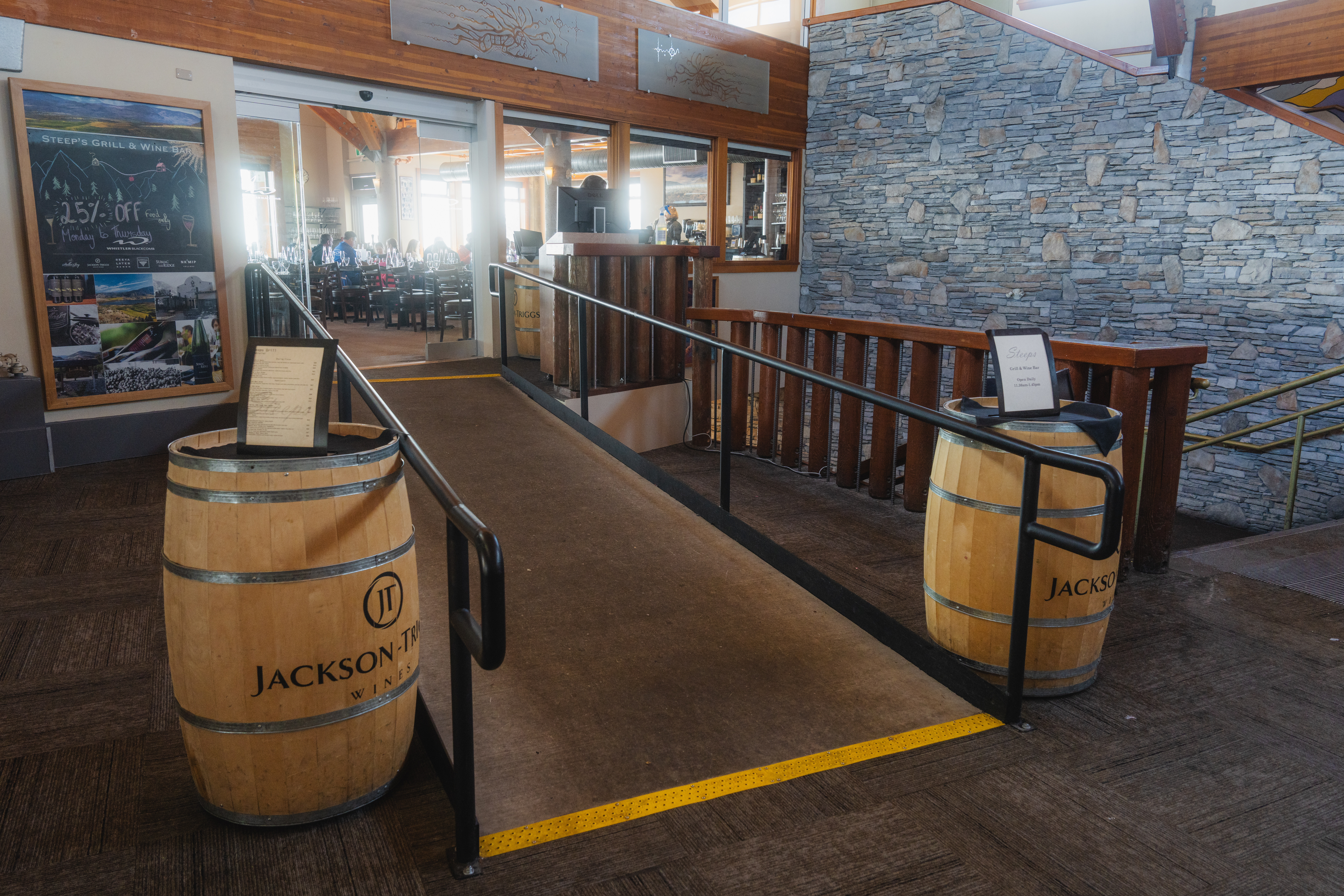
The Business Case for Accessibility
“Beyond the human aspect, there is a financial imperative for improving accessibility,” Omer said. “Individuals between the ages of 55-70 are a large part of our user base, and we owe it to our guests to ensure that they can continue to use our facilities, spend their time and money here with their families.”
Ski hills have a high rate of temporary disability, and as individuals age, so does the rate of disability. By improving facilities, everyone can enjoy the offerings of the resort and have the ability to participate fully.
“Universal Design really does benefit everybody,” Omer said. “Skiing and snowboarding are multigenerational sports, and it’s a great time to spend as a family. We want to help keep people active and together for as long as we can.”
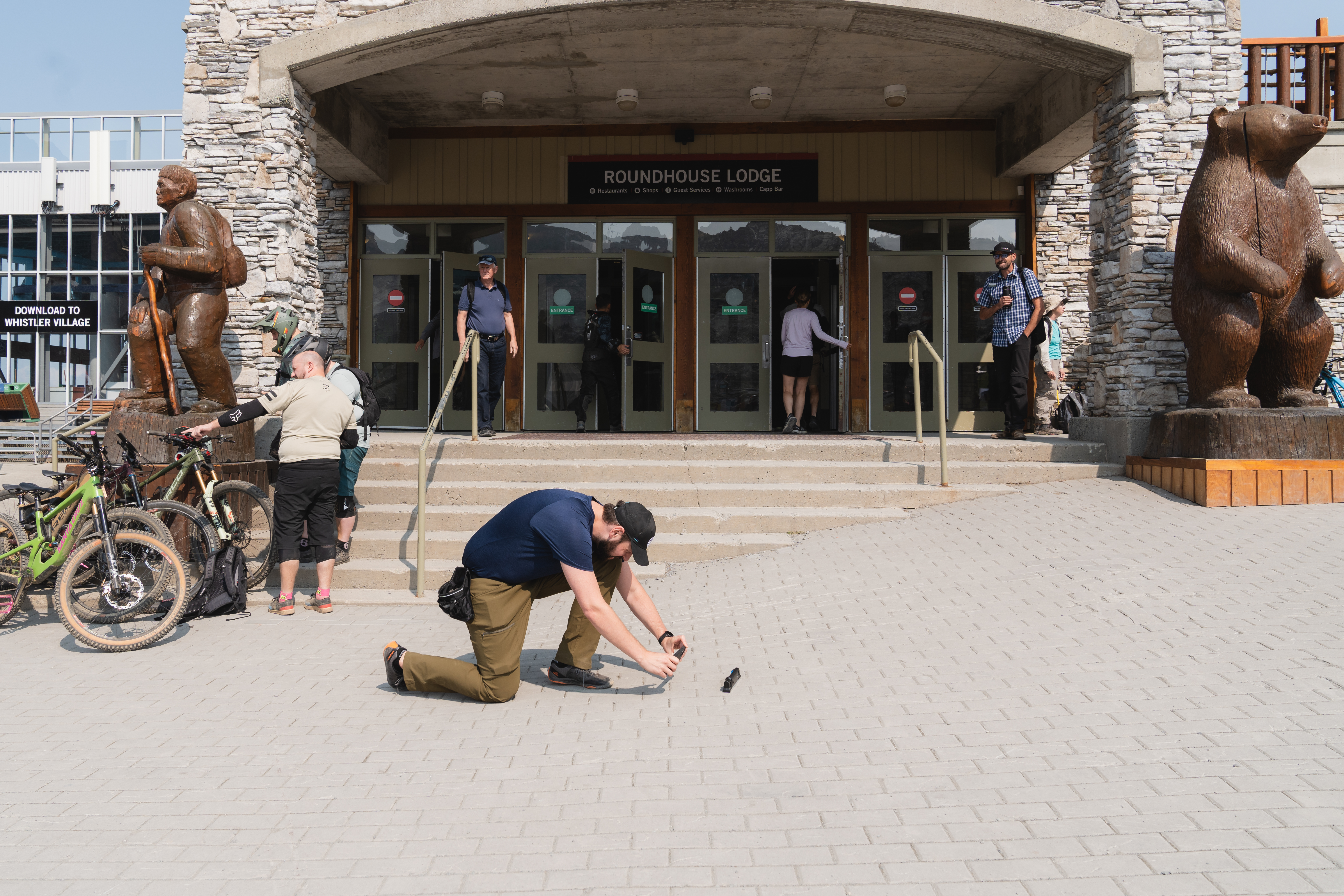
A Journey not a Destination
Going forward, Omer explained that they intend to continue making upgrades to not only this building, but others.
“We want to include elements like adaptive hearing at guest services, improved wayfinding at restaurants, among others,” he said. “it's a journey, this was just the first step.”
The team at Whistler Blackcomb is using the RHFAC report as a roadmap and an opportunity to continue investing in accessibility.
“One of our maintenance team took RHFAC Training and became an RHFAC Professional,” Omer said. “We now have someone in house who is trained in this field and can help us progress as we make the changes. We hope that these changes can open the doors to new guests as well as benefit our existing guests.”
